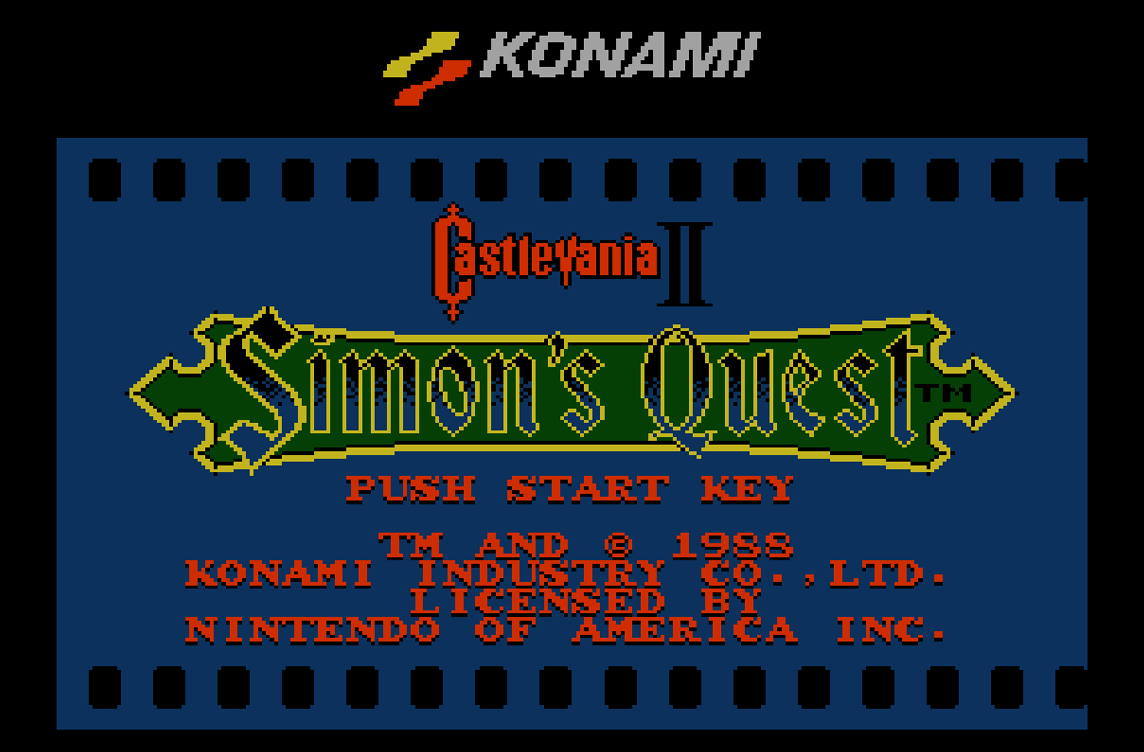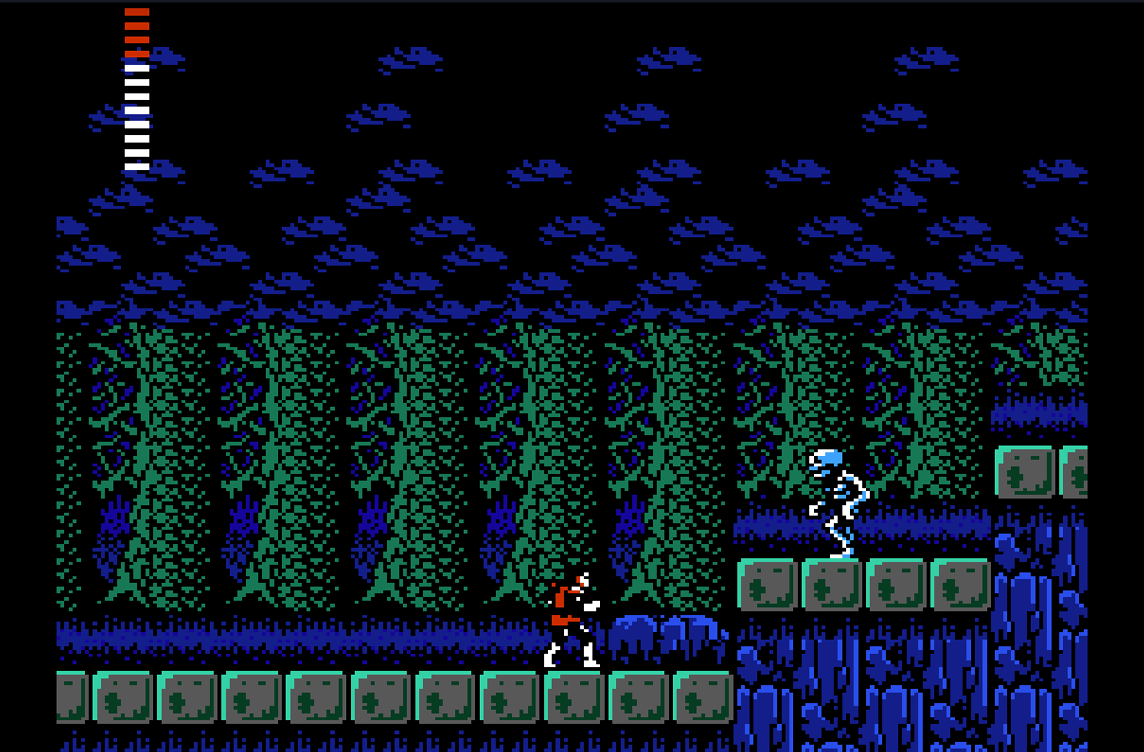- Gameplay Evolution: A Leap into the Unknown
- The Adventure Begins
- Day and Night: A Double-Edged Sword
- The Quest for Dracula’s Remains
- Mansions of Mystery
- Cryptic Clues and Frustrating Secrets
- The Legacy of Castlevania II: Simon’s Quest
- Controversy and Influence
- A Return to Roots and a Look to the Future
- Conclusion: Embracing the Shadows of the Past
- Play Castlevania II: Simon’s Quest Online Anywhere, Anytime!
In the pantheon of NES classics, Castlevania II: Simon’s Quest stands as a monument to ambition, an attempt to redefine what a sequel could be in the late ’80s. Breaking away from the straightforward, whip-cracking action of its predecessor, Simon’s Quest dared to immerse players in a world where exploration and puzzle-solving took center stage. Yet, this daring move created a rift in its legacy, making it a title revered by some and reviled by others.
Gameplay Evolution: A Leap into the Unknown
The Adventure Begins
Castlevania II: Simon’s Quest took players on a unique journey, blending RPG elements with the action-platformer roots of the original game. This sequel set players off into a mysterious, sprawling world, where interaction with townsfolk and the gathering of clues were as crucial as vanquishing the undead. The game’s open-ended approach was revolutionary, offering a sense of freedom and discovery previously unseen in the series.
Day and Night: A Double-Edged Sword
One of the game’s most notable features was its day-to-night cycle, a mechanic that not only altered the game’s atmosphere but also its gameplay. Nights in Simon’s Quest were perilous, with enemies becoming tougher and the already haunting landscapes taking on an even more sinister aura. This cycle added a layer of strategy and urgency to the game but also introduced a recurring interruption to the gameplay flow, as transitions were often slow and could hinder the pace of exploration.

The Quest for Dracula’s Remains
Mansions of Mystery
The heart of Simon’s Quest lay in the quest to locate and conquer the mansions scattered across the land, each holding a piece of Dracula’s remains. These mansions were designed as labyrinths filled with traps, enemies, and puzzles, echoing the dungeons of traditional RPGs. However, the execution often fell short of expectations, with some areas lacking the challenge and depth that could have elevated the experience.
Cryptic Clues and Frustrating Secrets
The game’s reliance on cryptic clues and secrets became a point of contention. Players were expected to decipher vague hints and perform obscure actions to progress, leading to widespread frustration. This design choice, intended to encourage exploration and conversation, often resulted in players wandering aimlessly or turning to external guides for answers.
The Legacy of Castlevania II: Simon’s Quest
Controversy and Influence
While Castlevania II: Simon’s Quest may have been a divisive entry in the series, its influence on the evolution of video games is undeniable. It pushed the boundaries of what a sequel could be, experimenting with genre-blending and open-world concepts that would become staples in later gaming eras. Its ambitious design served as a learning experience, demonstrating the importance of clarity and player guidance in game development.
A Return to Roots and a Look to the Future
The mixed reception of Simon’s Quest led Konami to return to the series’ traditional action-platformer roots with Castlevania III: Dracula’s Curse. However, the spirit of exploration and narrative depth that Simon’s Quest introduced would later be fully realized in titles like Castlevania: Symphony of the Night, proving that its legacy was not in vain.
Conclusion: Embracing the Shadows of the Past
Castlevania II: Simon’s Quest is a testament to the risks and rewards of game development. It stands as a fascinating case study in how ambition, when not fully realized, can lead to a polarizing legacy. Yet, it also highlights the importance of innovation, serving as a crucial stepping stone towards the future of the Castlevania series and the action-adventure genre at large.

Play Castlevania II: Simon’s Quest Online Anywhere, Anytime!
For those intrigued by the tales of Simon’s Quest, the game remains accessible across various platforms, including modern consoles, PCs, and even mobile devices. This accessibility ensures that new generations can experience this enigmatic chapter in the Castlevania saga, whether to uncover its secrets for themselves or to appreciate its place in gaming history.